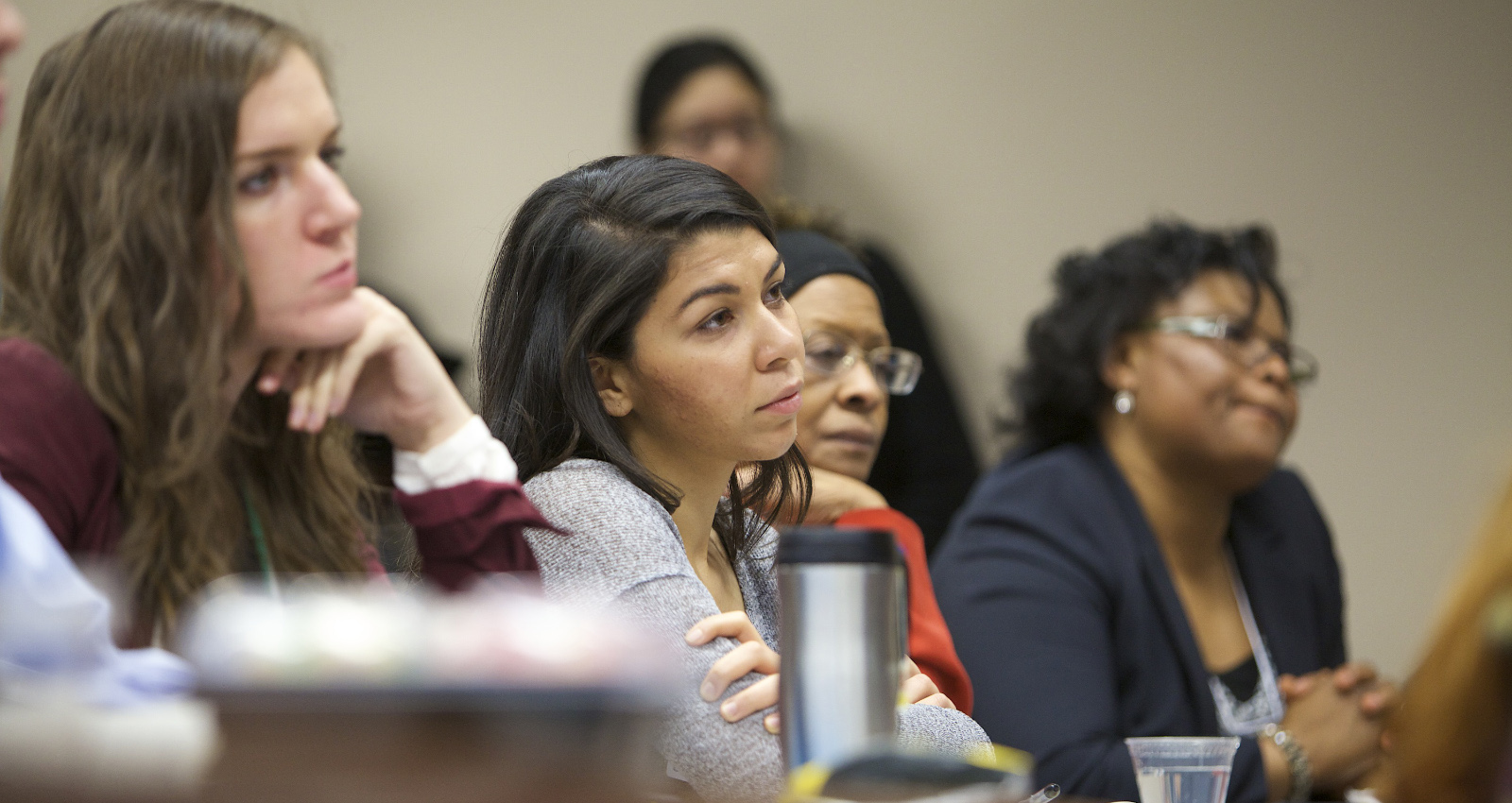 Public health professionals will gather at DePaul University Aug. 12 to learn about health disparities in Chicago and beyond. (DePaul University/Jeff Carrion)
Public health professionals will gather at DePaul University Aug. 12 to learn about health disparities in Chicago and beyond. (DePaul University/Jeff Carrion)CHICAGO — People who live in different Chicago neighborhoods and have the same health issue can experience entirely different outcomes because of their zip code, race or income, according to researchers at DePaul University. Public health professionals working to identify and address these inequalities will present their findings Aug. 12 at a daylong conference.
The Health Disparities and Social Justice Conference will be
held from 8:30 a.m. to 4 p.m. at the DePaul Center, 1 E. Jackson Blvd.
Researchers and practitioners from DePaul, Rush University Medical Center and
other community organizations will discuss the health and social issues that
impact people in Chicago and beyond. The conference is open to the public and
there is no cost to attend, but registration is required by Aug. 11 at http://bit.ly/DPUMPH16.
The conference is presented by DePaul’s Master of Public
Health program and the Center for Community Health Equity, a collaboration between
DePaul and Rush that seeks to improve health outcomes and contribute to the elimination
of health inequities in Chicago. More than 30 presentations and exhibits are
planned, including:
9:10 a.m. | Tackling
Growing Health Inequities: Is the evidence failing us?
Keynote speaker Patricia O'Campo of the University of Toronto will discuss how
stronger evidence is needed to support the programs and interventions that
address health inequalities. She is a professor of epidemiology and co-lead on
the University of Toronto’s Healthier Cities Hub, a research and education unit
that works with community organizations to improve the health of those residing
in urban settings. In her research, O’Campo often focuses on upstream
determinants of health, quantifying the impacts of structural issues and social
programs and working to propose concrete solutions. She is co-editor of “Rethinking
Social Epidemiology: Toward a Science of Change.”
10:10 a.m. | “The
Chicago Health Equity Reader”
Throughout Chicago’s history, researchers have noted health disparities
among its inhabitants. Scholars from DePaul University and Rush University have
gathered more than 100 years of these findings into a forthcoming book, “The
Chicago Health Equity Reader.” Panelists from the Center for Community Health
Equity will include Dr. David Ansell, senior vice president of system
integration and professor of internal medicine at Rush University Medical
Center; center co-directors Raj Shah of Rush and Fernando De Maio of DePaul; and
John Mazzeo, director of DePaul’s Master of Public Health program.
Noon | Life Expectancy
in Chicago
Cultural and medical anthropologist Judith L. Singleton of DePaul University
will present a poster on life expectancy in Chicago. Using recent existing
data, Singleton and colleagues employed Geographic Information Science to
generate maps about life and death in Chicago neighborhoods. Singleton and her
colleagues will discuss what this data reveals about how social determinants of
health (place, race, income status, residential segregation and violence)
influence life expectancy.
2:10 p.m. | Oil
Pollution and Other Determinants of Health Inequalities among Minority Groups
in Nigeria
DePaul University adjunct faculty member Isidore A. Udoh is an expert on conflict
analysis and resolution and the impact of natural resource exploitation, especially
oil, on the environment and climate in sub-Saharan Africa. He will present on
the intersection of oil exploration and production on human development,
conflict and health in Africa.
3:10-4 p.m. |
“Community Activism and Health Equity”
Ansell will present a panel discussion featuring Chicago
activists the Rev. Jose Landaverde, the Rev. Walter Coleman, Emma Lozano, and
Alex Goldenberg of Fearless Leadership by the Youth. Panelists will discuss a
range of issues related to health disparities, including undocumented
immigrants who struggle to access health care, and the organizing effort to
bring a trauma center to the South Side of Chicago.
SAFE SHAPE (all day) |
“Everywhere But Safe” screening at 10:50 a.m. | “Making a Place Called Safe”
screening at 1:10 p.m.
Greg Scott, professor of sociology and the director of the Social Science
Research Center at DePaul will present on supervised drug consumption. Scott is
a visual sociologist and filmmaker who focuses on the social, cultural,
economic and public health factors associated with the supply, demand and use
of street drugs. Scott will show two of his documentary films about public drug
injection and the movement to establish medically supervised drug consumption
facilities in the United States. He will also present his public health art
installation, SAFE SHAPE, a traveling pop-up exhibit in the form of a pavilion
that operates as a mock supervised drug consumption facility.
Other session topics include helping veterans with diabetes,
educating teen mothers about breastfeeding and giving low-income Latinos access
to mental health services. For a full schedule, visit http://bit.ly/healthequityDPU.
More information about DePaul’s Master of Public Health
program in the College of Liberal Arts and Social Science is available at http://bit.ly/DePaulMPH2.
###
Media Contact:
Kristin Claes Mathews
kristin.mathews@depaul.edu
773-362-7735